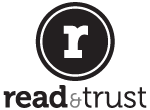It is all too easy to move about in the world and see absolutely nothing of it.
The writer must learn how to be in the world and also separate from it. Can you go somewhere, anywhere, and watch, be comfortable in watching? It is more difficult than you think. We humans are animals, and animals have an uncanny ability to know when they’re being watched. And watching things changes the behavior of the thing being watched. That is a basic tenet of science.
Many, most people, go about their lives in public knowing that other people see them, but don’t really pay attention to them. You, the writer, must become the hunter. From behind your blind inside your head, behind your eyes, you’ll build an observation post, a place where you can watch and see things that other people never notice. You’ll need that. If you want to write about people, to understand how they really live, you’ll need to observe, to see. As you practice you’ll learn how to be in public and watch other people without attracting attention to yourself.
The book, especially the notebook, the primary tool of the working writer, is the perfect camouflage. If you do not stare at other people and react to them, most of the observed will assume that you’re looking past them or seeing something else. But you’ll see them. Make a note. This activity causes others to look away. They think, “Ah, a writer, a student. Not a threat.” But we writers are a threat. We see, capture, and listen. The most effective camouflage in public is to dress well and carry a clipboard.
Where does most writing, especially fiction, fail? It’s from the inaccurate depiction of human activity and realistic behavior. Why? Because readers have a keen eye for accuracy. Bad writing stands out. “People don’t act like that. People don’t talk like that.” Even good business writing has to have an accurate human component. You can’t become a great writer without becoming an expert observer.
You’ll only gain that understanding by observing others. You, yourself, the writer, are a poor subject for your own observations. You cannot observe yourself without being aware of your own observation. But, strangely enough, we writers and actors assume that others are always watching us. It is part ego and part realization that we are watching others, so they are probably watching us. But they are not. You can watch without being seen.
This leads to another phenomenon of the writer: when you are observing others, you are extending the solitude, the separation, that you experience as a writer. You are alone in public.
It is part of the reward and the penalty of becoming a writer.


{ 0 comments… add one now }